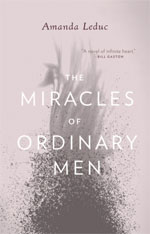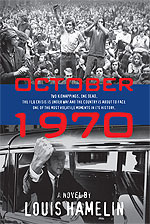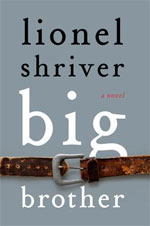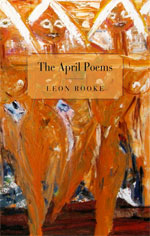Allow me to introduce Bookgaga blog visitors to another wonderful and perceptive guest book reviewer. Natasha Hesch loves novels. She started out as a public librarian, and now works at BiblioCommons. She regularly shares short reviews of what she has read as tegan on BiblioCommons’ library software.

I had been wanting to read Annabel by Kathleen Winter for quite some time, but it had just not made it to the top of my reading list. When Vicki asked me to read and review one of the 5 selected Canada Reads books, I jumped at the opportunity to review Annabel.
As I made my way through the novel on my daily TTC commute, I kept thinking about this year’s Canada Reads big question “What is the one novel that could change Canada?” I haven’t read the other 4 Canada Reads titles, but by reading Annabel I think Canadians could become more open-minded and accepting of other people’s differences. Discrimination against people who don’t fit neatly into sex and gender constructs persists today.
The main character of Annabel is a child who is born a hermaphrodite. Treadway, the father independently decides that the child should be raised as a boy: “[Treadway] knew his baby had both a boy’s and a girl’s identity, and he knew a decision had to be made.” (Winter, 26). Although Jacinta and Treadway’s baby is born in 1968, I wonder how different of a situation parents would be in today? I didn’t look into what the typical medical practices are today, but there is still a definite requirement to label a child: governmental institutions still impose the binary of male vs. female upon parents right from the start. I took a quick look at the Ontario and Newfoundland form for getting a birth certificate, and both forms still have only two check boxes available for sex: male or female. At a federal level, Statistics Canada also erases the existence of intersex individuals: on the 2011 Census of Population, only male and female populations are recorded.
Annabel really makes you think about the labels that are placed upon people, and the problematic nature of trying to label everything to try to understand it. Throughout the novel, there are numerous references to naming, defining and labeling things: “Everyone was trying to define everything so carefully, Jacinta felt; they wanted to annihilate all questions” (Winter 45). By labeling things, we are often imposing limits; as Winter eloquently writes “You define a tree and you do not see what it is; it becomes its name” (Winter 350).
As a reader you can’t help but want Wayne to just be who s/he is. There is a very sweet moment early on in the book where Wayne longs for a girls orange bathing suit. He begs his mother for one, but knows his father would not approve: “Could we get me a bathing suit like Elizaveta Kirilovna’s and not tell Dad?” (Winter 86). I wanted to buy the swimsuit for Wayne/Annabel. The innocence of Wayne’s desires are at times heart-breaking. I think if all Canadian’s read this book, they would empathize with Wayne, and be more open to accepting the blurry lines that exist with sex and gender identity.
There is much time spent in the novel on bridges. Thomasina, who accepts Wayne/Annabel for who s/he is, sends postcards of bridges to Wayne/Annabel. S/he is obsessed with these bridges, s/he is constantly looking at the postcards and redrawing the bridges. I couldn’t help but think that the bridges were a symbol of the interstitial space that Wayne/Annabel lives in. A space bridging two places, not male, not female, but in between.
Wayne/Annabel as a character is a very inspiring one. S/he never complains about his/her situation, no matter what happens to him/her. Although at times Winter writes Wayne/Annabel through very difficult experiences, I was very happy and relieved that Winter wrote Wayne/Annabel to a ‘happy ending’. I think that Annabel as a novel has the ability to create empathy for people who are different than one’s self. I look forward to the Canada Reads debates.
Note: I’m approaching my preparations for Canada Reads 2014 a little differently than previous years. This year, I’m not reading and reviewing the books in advance of the debates. Instead, I’ve asked five wise and articulate readers – of whom Natasha is the second – to review the finalist books and convince me one way or the other of the value of the book and its suitability for this year’s Canada Reads theme of “What is the one book that could change Canada?”









